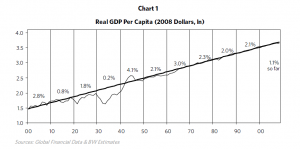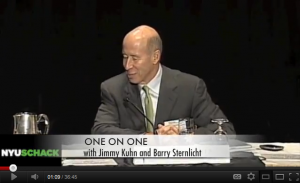Six lessons on crisis that help explain why we’re still in one:
- When you don’t reinvent institutions at a time of systemic failure, the problems they’re creating don’t just magically disappear.
- When you prop up (read: bail out) the institutions causing the crisis, instead of reinventing them, the crisis will deepen.
- When dysfunctional institutions prop one another up, prosperity’s a house of cards. Crisis becomes stagnation.
- When propping up failed institutions has drained your resources, you’ve turned a crisis into a catastrophe.
- The longer it takes you to see a crisis for what it truly is, the disproportionately worse it’s likely to get.
- When people who are prisoners of the
Continue reading Six lessons on the financial crisis that help explain why we’re still in one.


